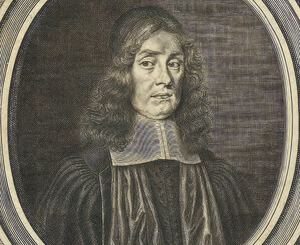William Bates was one of the most popular and esteemed preachers among the Nonconformists. A master of the Puritan plain style of preaching, his stress on piety earned him the name ‘silver-tongued’.
Born in November 1625, he was the son of William Bates, gentleman of St Mary Magdalene parish, Bermondsey, Surrey. He graduated from Queen’s College with a Bachelor of Arts degree in 1645 and a Master of Arts degree in 1648. The following year he became vicar of Tottenham, Middlesex, and a few years later succeeded William Strong as vicar of St Dunstan-in-the-West. Like other Puritans, Bates often lectured at the famous morning exercises at Cripplegate Church.
According to Richard Baxter, Bates played a major role in negotiating for the restoration of Charles II. As a reward, he was appointed royal chaplain in 1660.
That same year he was appointed as a commissioner for the approbation of ministers by the Rump Parliament, and was given a doctorate in divinity from Cambridge University by royal mandate.
The following year he represented the Presbyterians as a commissioner at the Savoy Conference, of which one purpose was to review public liturgy. That included pointing out weaknesses in the Book of Common Prayer.
Bates’s first wife died young, as did his first daughter. At age 36, he married Margaret, 21-year-old daughter of Edward Gravenor, gentleman of St Giles Cripplegate. She outlived him by a generation.




